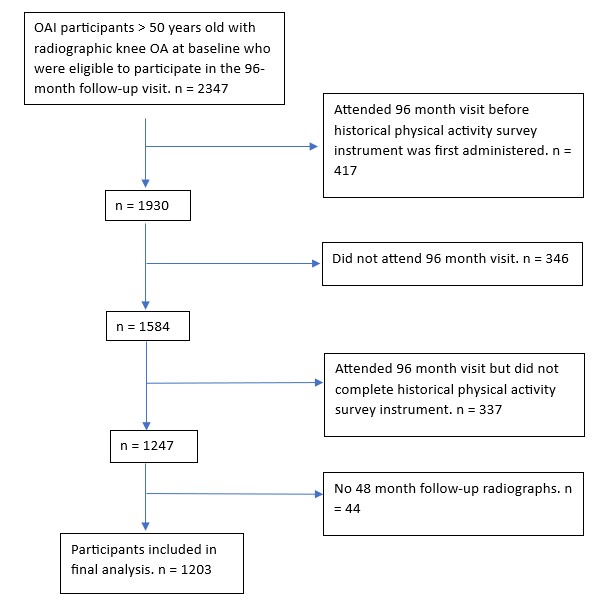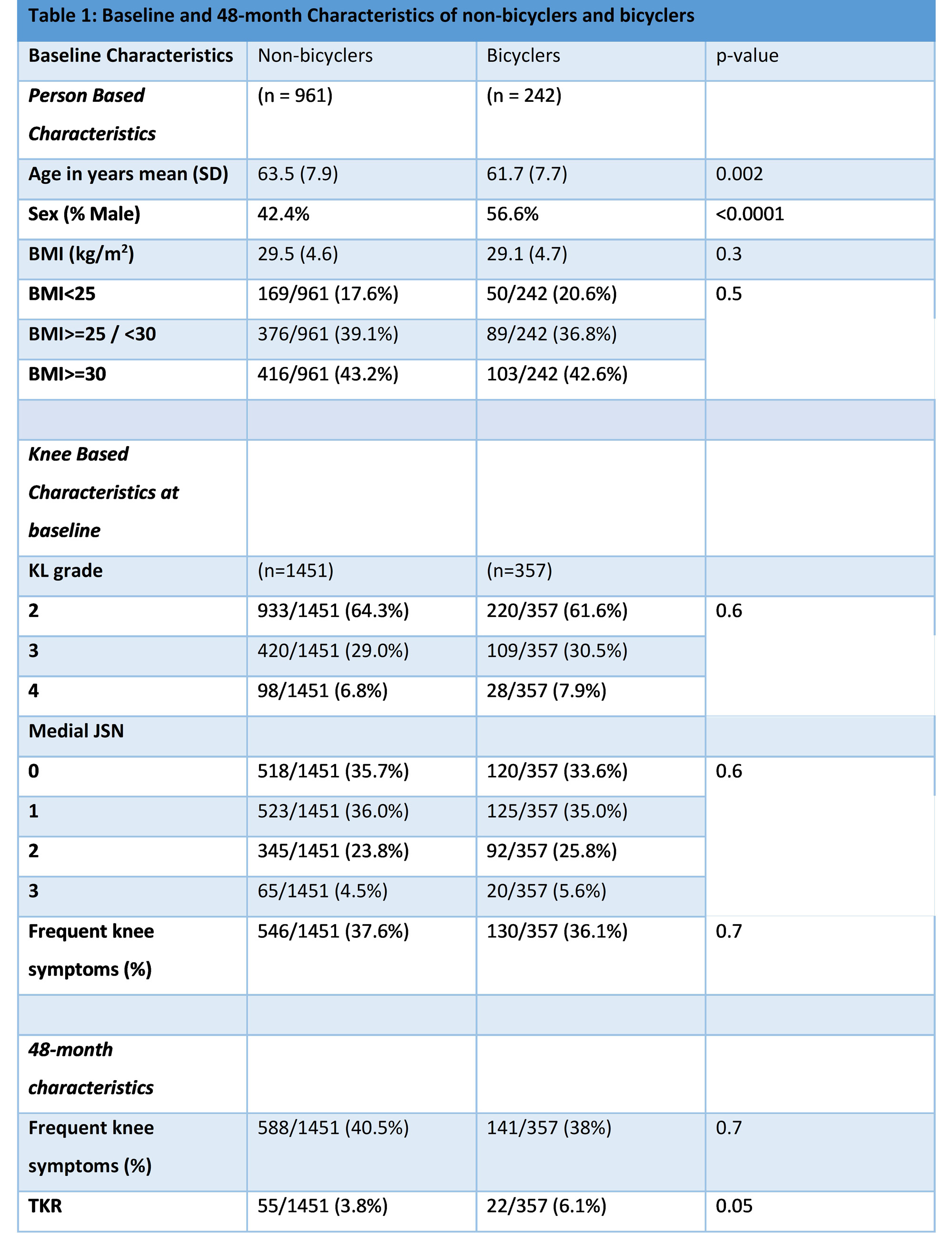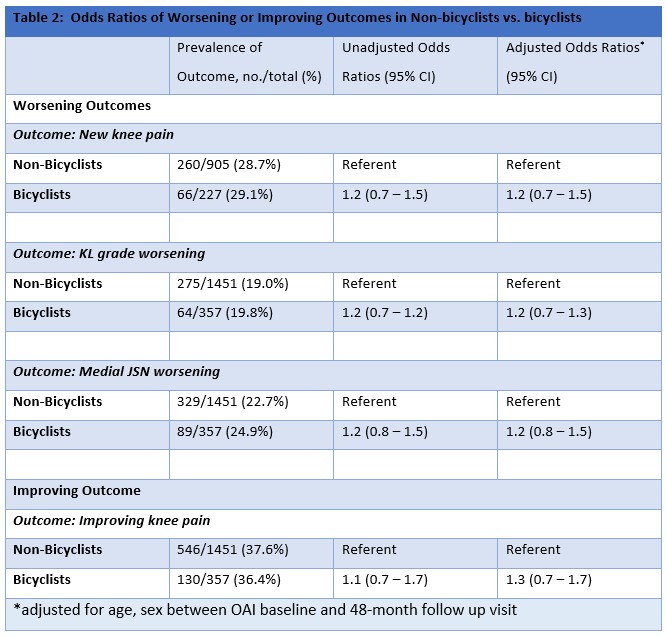Session Information
Session Type: Poster Session B
Session Time: 9:00AM-11:00AM
Background/Purpose: Bicycling is viewed as a non-weight bearing exercise and is often recommended as a preferred exercise for those with knee osteoarthritis (OA).However, there is no long-term epidemiologic evidence to support this recommendation.Therefore, we evaluated the relationship of bicycling with symptomatic and structural progression in those with pre-existing radiographic knee OA in the Osteoarthritis Initiative (OAI), a longitudinal observational study designed to identify biomarkers for the development and progression of symptomatic and structural knee OA.
Methods: This is a nested cohort study within the OAI, which included participants over the age of 50 years at OAI baseline who had radiographic OA in at least one knee (excluding those knees that already had undergone joint arthroplasty) at the time of OAI enrollment. Bicyclists were defined using a self-administered questionnaire completed at the 96-month visit, identifying people who had participated in the activity at least 10 times for at least 20 minutes each time. The flow diagram illustrates those who were included in the analysis. At baseline and 48-months, symptoms were assessed using the frequent knee pain question, and radiographs were scored using the Kellgren-Lawrence (KL) grade (2-4) and medial joint space narrowing (JSN) score (0-3) to determine the following outcomes of interest, including KL grade worsening (increase of KL by at least 1 grade), medial JSN worsening (any increase in medial JSN score, including within grade worsening), new knee pain (transitioning from no knee pain to knee pain), and improved knee pain (transitioning from knee pain to no knee pain). We evaluated the association of bicycling with the outcomes of interest using a knee-based analysis with logistic regression with generalized estimating equations to account for correlation between knees within a given person.We present crude results and those adjusted for age and sex.
Results: 1203 participants contributed 1808 knees to the study with 20% self-identifying as bicyclists. Table 1 shows the demographics of the two groups; both KL grade and JSN grade were well balanced between the groups. Notable differences were male predominance and increased number of TKR in the bicycling group compared with controls. Table 2 shows that there were no significant associations between bicycling and any of the four outcomes
Conclusion: Among individuals 50 years old and older with known radiographic knee OA, self-reported bicycling was not associated with worsening knee pain or radiographically defined structural progression. These findings support that bicycling is not harmful to knees in those with radiographic OA.
To cite this abstract in AMA style:
McLaughlin C, Lo G, Driban J, McAlindon T, Kriska A, Rockette-Wagner B, Hochberg M, Nevitt M, Kwoh K, Eaton C. Bicycling Is Not Associated with New Knee Pain or Disease Progression over 48 Months in Those with Knee Osteoarthritis: Data from the Osteoarthritis Initiative [abstract]. Arthritis Rheumatol. 2023; 75 (suppl 9). https://acrabstracts.org/abstract/bicycling-is-not-associated-with-new-knee-pain-or-disease-progression-over-48-months-in-those-with-knee-osteoarthritis-data-from-the-osteoarthritis-initiative/. Accessed .« Back to ACR Convergence 2023
ACR Meeting Abstracts - https://acrabstracts.org/abstract/bicycling-is-not-associated-with-new-knee-pain-or-disease-progression-over-48-months-in-those-with-knee-osteoarthritis-data-from-the-osteoarthritis-initiative/



